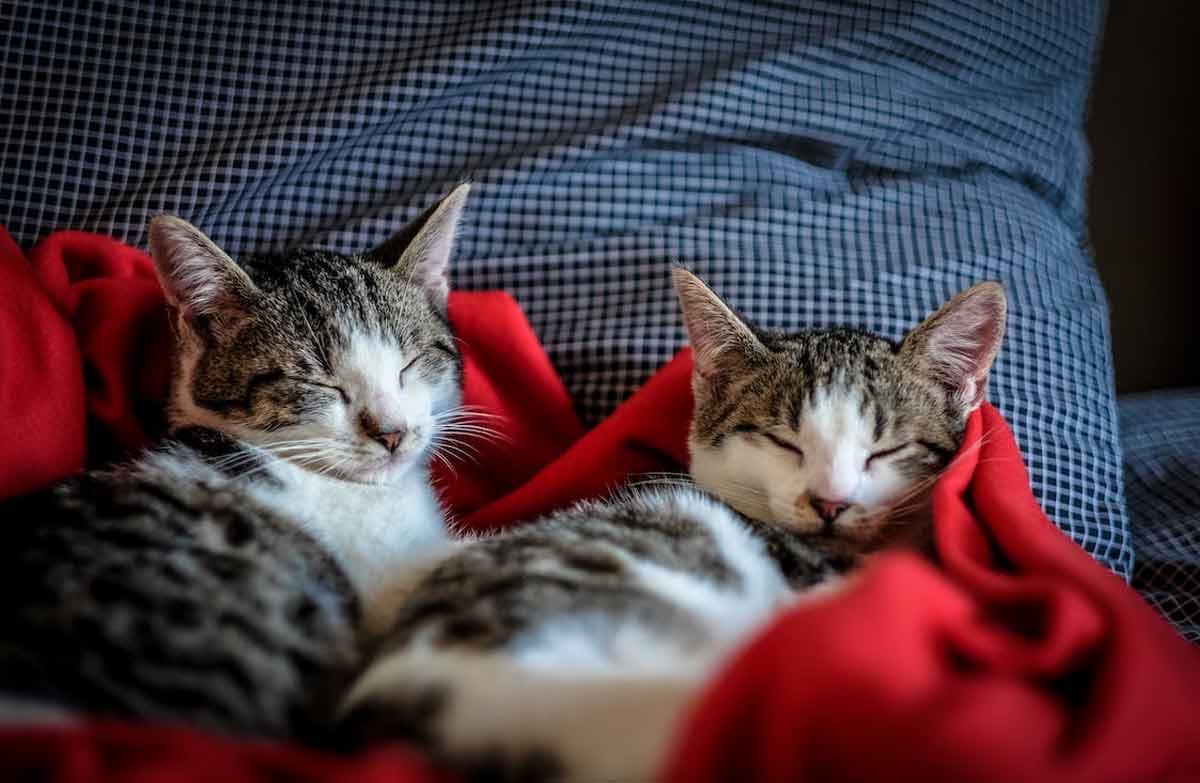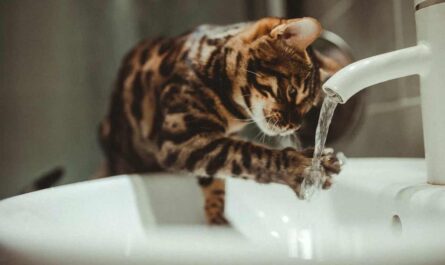On for the routine wellness exams for cat, imagine this: a picture of purrfect health. Whiskers twitching with curiosity, a playful glint in emerald eyes, your senior feline companion chases a feathery toy across the living room. This vibrant scene is a testament to the power of preventative care, and routine wellness exams play a crucial role in keeping your cat healthy and happy throughout their nine lives.
This comprehensive guide delves into the world of feline wellness exams, empowering you to be a proactive pet parent. We’ll explore the numerous benefits of preventative care, navigate the different stages of a cat’s life and their corresponding exam considerations, and provide a detailed breakdown of a typical exam. Additionally, we’ll highlight the importance of early detection and treatment, and equip you with resources for finding qualified veterinarians to ensure your furry friend receives the best possible care.
So, buckle up, cat lovers! Let’s embark on a journey to understanding the importance of routine wellness exams and keeping your feline companion thriving for years to come.
What’s Inside This Guide:
- The Purrfect Protection of Preventative Care: We’ll explore the numerous benefits of routine wellness exams, from early detection of potential problems to promoting overall health and well-being.
- A Tailored Approach: Kittens, Adults, Seniors: We’ll delve into the varying needs of cats at different life stages, and how wellness exams are tailored to address their specific health concerns.
- A Peek Under the Hood: A Typical Exam Breakdown: We’ll provide a step-by-step breakdown of a typical wellness exam, including physical examinations, diagnostic tests, vaccinations, and parasite prevention protocols.
- Early Detection, Early Intervention: We’ll emphasize the importance of early detection and treatment of potential health issues, allowing for a better prognosis and improved quality of life for your cat.
- Finding Your Feline’s Perfect Vet: We’ll offer resources and tips for locating qualified and compassionate veterinarians who can become trusted partners in your cat’s healthcare journey.
Proactive Purrfection: The Power of Preventative Care
For many cat owners, the thought of a vet visit might conjure up images of frantic meows echoing through a sterile waiting room and the dreaded struggle of administering a carrier full of hissing fur. However, routine wellness exams are far more than just stressful ordeals – they are the cornerstone of proactive healthcare for your feline friend. Let’s move beyond the misconception of wellness exams simply being vaccination appointments, and delve into the power of preventative care for a long and happy life with your furry companion.
Beyond Just Shots: A Window into Overall Health
Sure, vaccinations are a crucial part of a wellness exam, protecting your cat from potentially life-threatening diseases. But these exams offer so much more! Think of them as a comprehensive checkup, a chance for your veterinarian to give your cat a thorough head-to-tail examination. This includes:
-
Visual Inspection: Your veterinarian will carefully examine your cat’s eyes, ears, nose, and coat, checking for any signs of abnormalities, parasites, or potential infections.
-
Physical Examination: They’ll listen to your cat’s heart and lungs, feeling their abdomen to assess organ health and overall condition. This allows for early detection of potential problems like heart murmurs or digestive issues.
-
Weight Management: Monitoring your cat’s weight is crucial, as both obesity and weight loss can be signs of underlying health concerns. Your veterinarian can advise you on maintaining a healthy weight for your cat’s breed and age.
In essence, a wellness exam is a window into your cat’s overall health. It allows your veterinarian to identify potential issues early on, when they are often easier and more affordable to treat. Just like catching a small tear in your favorite sweater before it becomes a giant hole, early detection of health problems in your cat can significantly improve their prognosis and overall well-being.
A Long and Healthy Life: Investing in Your Cat’s Future
Imagine your cat living a long, healthy life, frolicking through your house with boundless energy and a playful glint in their eyes. Regular wellness exams are an investment in that future. By identifying and addressing potential health issues early on, you can significantly increase your cat’s lifespan and improve their quality of life.
Think about it this way: Catching a minor dental issue during a routine checkup can prevent it from progressing into a painful and expensive dental surgery down the line. Similarly, detecting early signs of kidney disease allows for early intervention and management, potentially adding years to your cat’s life. Regular wellness exams are not just about identifying problems – they are about promoting preventive healthcare for a long and happy life with your feline companion.
Peace of Mind for Pet Parents: The Gift of Proactive Care
Let’s face it, witnessing your cat under the weather can be a stressful experience for any pet parent. Regular wellness exams offer peace of mind by allowing you to proactively monitor your cat’s health. Knowing that your veterinarian has given your furry friend a clean bill of health can significantly reduce your stress and anxiety.
Furthermore, these exams provide an opportunity for you to discuss any concerns you might have about your cat’s behavior, appetite, or litter box habits. Your veterinarian can address your questions and offer guidance, empowering you to be the best possible caregiver for your feline friend.
So, the next time you consider a wellness exam, remember – it’s not just about vaccinations or a mere formality. It’s about taking a proactive approach to your cat’s health, investing in their future well-being, and experiencing the joy of a long and happy life together.
Tailored to Age: A Wellness Journey Through Your Cat’s Life
Just like humans, cats experience different health needs and considerations throughout their lives. Scheduling regular wellness exams at the veterinarian ensures your feline friend receives the preventive care they need to stay happy and healthy at every stage. Let’s explore the recommended wellness exam schedule for cats, tailored to their specific age group:
Kitten Care: Nurturing a Healthy Start
Kittens are bundles of boundless energy and curious exploration. During their first few months of life, they experience rapid growth and development, making frequent wellness exams crucial for their well-being. Veterinarians generally recommend scheduling kitten checkups every 3-4 weeks until they reach around 4 months of age.
These early visits focus on several key aspects:
-
Monitoring Growth and Development: Kittens grow like furry rockets during their first few months! The veterinarian will weigh your little one and ensure they’re on track for healthy development. They’ll also check for any potential congenital abnormalities that might require further evaluation.
-
Essential Vaccinations: Just like a suit of armor protecting a brave knight, vaccinations safeguard your kitten against potentially life-threatening diseases. During these early visits, your veterinarian will administer a series of vaccines to protect your kitten from illnesses like feline distemper, rabies, and feline calicivirus.
-
Parasite Prevention: Intestinal parasites can wreak havoc on a kitten’s delicate system. Regular checkups allow the veterinarian to screen for parasites and recommend appropriate preventive medications to keep your kitten healthy and parasite-free.
-
Addressing Early Concerns: Sometimes, even the healthiest kittens might experience minor health hiccups. Early wellness exams provide an opportunity to address any concerns you might have, such as diarrhea, vomiting, or respiratory issues. Catching problems early allows for prompt treatment and a speedy recovery for your little furball.
By attending these frequent wellness exams during kittenhood, you lay the foundation for a lifetime of good health for your feline companion.
Adult Cats (1-8 Years Old): The Prime of Life
Adult cats, often brimming with playful energy and a mischievous glint in their eyes, are the heart and soul of many homes. While they might seem invincible in their playful antics, scheduling yearly wellness exams for adult cats is essential for preventive care and early detection of potential health issues.
Here’s what you can expect during a typical wellness exam for an adult cat:
-
Comprehensive Physical Examination: The veterinarian will conduct a thorough physical exam, checking your cat’s overall health from nose to tail. This includes listening to their heart and lungs, examining their teeth and gums, and feeling their abdomen for any abnormalities.
-
Vaccinations: Some core vaccinations, like rabies, require periodic boosters to maintain their effectiveness. Your veterinarian will advise you on the appropriate vaccination schedule for your adult cat.
-
Parasite Prevention: Just like kittens, adult cats need ongoing protection against internal and external parasites. The veterinarian will discuss parasite prevention options and recommend the most suitable product for your cat’s lifestyle.
-
Addressing Age-Related Concerns: As adult cats mature, they might develop subtle changes in behavior or litter box habits. These exams provide an opportunity to discuss any concerns you have and ensure your cat remains healthy and happy throughout their prime years.
Scheduling yearly wellness exams for your adult cat is an investment in their long-term health. Early detection of potential problems allows for prompt intervention and treatment, often leading to more favorable outcomes for your feline friend.
Senior Cats (Over 8 Years Old): Embracing the Golden Years
Our beloved feline companions eventually transition into their golden years, often becoming cherished senior members of the family. As their bodies change, the importance of veterinary care intensifies. Veterinarians generally recommend scheduling biannual or even more frequent wellness exams for senior cats.
Here’s why these exams are crucial for senior cat health:
-
Monitoring Age-Related Changes: Senior cats might experience a decline in certain bodily functions, such as vision or kidney function. Regular wellness exams allow the veterinarian to monitor these changes and address them proactively. Early detection and management of age-related conditions can significantly improve your senior cat’s quality of life.
-
Addressing Senior-Specific Concerns: Senior cats are more susceptible to certain health conditions like arthritis, hyperthyroidism, or kidney disease. Wellness exams provide an opportunity for early detection and treatment of these conditions, allowing your senior cat to enjoy a longer and healthier golden age.
-
Nutritional Guidance: As cats age, their nutritional needs might change. Your veterinarian can recommend an appropriate senior cat food formulated to meet their evolving needs and support their overall health.
-
Tailoring Care to Your Cat: No two senior cats are alike. These exams allow for personalized care plans that consider your cat’s specific needs and preferences. Whether it’s adjusting their medication regime or recommending pain management strategies for arthritis, your veterinarian can work with you to ensure your senior cat receives the optimal level of care and comfort.
Making the Most of Wellness Exams
Scheduling regular wellness exams is a vital part of responsible cat ownership. Here are some tips to ensure these visits are productive and positive for both you and your feline friend:
-
Prepare a List of Questions: Do you have any concerns about your cat’s behavior, appetite, or litter box habits? Write down your questions beforehand to ensure you don’t forget anything during the appointment.
-
Gather Medical Records: If your cat has any previous medical history, bring copies of their medical records to the veterinarian. This allows for a more comprehensive understanding of your cat’s overall health.
-
Practice Makes Perfect: If your cat dislikes car rides, consider using a calming pheromone spray or Feliway wipes to create a more relaxing environment during transport. You can also practice carrier training at home to make the experience less stressful for your cat.
-
Be Your Cat’s Advocate: You know your cat best! Pay attention to any subtle changes in their behavior or physical condition, and don’t hesitate to voice your concerns to the veterinarian.
By working together with your veterinarian and attending regular wellness exams, you can ensure your cat receives the preventive care they need to thrive at every stage of their life. Remember, these exams are not just about identifying potential problems – they’re an opportunity to celebrate your cat’s health, address any concerns you might have, and build a strong foundation for a long and happy life together.
A Nose-to-Tail Journey: Exploring the Components of a Wellness Exam
Think of your cat’s wellness exam as a fascinating detective story, with the veterinarian piecing together clues about your feline friend’s health. This comprehensive examination goes beyond a simple glance – it’s a nose-to-tail exploration designed to ensure your cat is thriving from the inside out. Let’s delve into the key components of a typical wellness exam:
The Art of Observation: A Keen Eye for Clues
The veterinarian’s detective work begins even before the physical examination. As you enter the exam room, the veterinarian will observe your cat’s overall demeanor. Are they bright-eyed and alert, or do they seem lethargic and withdrawn? Their activity level can also offer valuable insights – a playful pounce across the exam table suggests a healthy energy level, while sluggishness might warrant further investigation. Even the condition of your cat’s fur can be a clue. A shiny, well-groomed coat indicates good overall health, while a dull or matted coat might suggest nutritional deficiencies or underlying health issues.
A Thorough Examination: Unveiling the Big Picture
Once the initial observations are complete, the veterinarian will proceed with a comprehensive physical examination. Think of it as a detailed map of your cat’s body, ensuring every aspect is carefully assessed:
-
Vital Signs: Just like humans, cats have vital signs that provide essential health information. The veterinarian will check your cat’s temperature, heart rate, and respiratory rate, looking for any abnormalities that might indicate potential health problems.
-
Eyes and Ears: A peek into your cat’s eyes and ears can reveal a wealth of information. The veterinarian will examine the clarity of the corneas, check for signs of discharge or redness, and ensure proper ear canal health.
-
Teeth and Gums: Dental health is an integral part of your cat’s overall well-being. The veterinarian will assess your cat’s teeth for signs of tartar buildup, inflammation, or potential fractures. Healthy gums should be pink and firm, while red or swollen gums might suggest dental disease.
-
Palpating the Abdomen: Gently feeling your cat’s abdomen allows the veterinarian to assess the internal organs for any abnormalities in size, shape, or texture. This can help detect potential problems like bladder infections or enlarged organs.
By meticulously examining each aspect of your cat’s body, the veterinarian builds a comprehensive picture of their overall health.
Diagnostics When Needed: Delving Deeper
In some cases, the veterinarian might recommend additional diagnostic tools to gain a deeper understanding of your cat’s health. These tools might include:
-
Bloodwork: A blood test analyzes various components in your cat’s blood, offering insights into organ function, blood cell health, and the presence of potential infections.
-
Urinalysis: Examining your cat’s urine can reveal information about their hydration status, kidney function, and the presence of urinary tract infections.
-
X-rays: X-rays provide a visual representation of your cat’s bones and internal organs, aiding in the diagnosis of certain conditions like fractures, arthritis, or internal masses.
The veterinarian will discuss the need for any additional diagnostics based on their findings during the physical examination and any specific concerns you might have about your cat’s health.
Vaccinations and Parasite Prevention: A Shield of Protection
Wellness exams also provide an opportunity to ensure your cat is up-to-date on essential vaccinations. These vaccinations protect your feline friend from potentially life-threatening diseases like rabies, feline distemper, and feline calicivirus. The veterinarian will recommend a vaccination schedule tailored to your cat’s age and lifestyle.
Parasite prevention is another crucial aspect of a wellness exam. Internal and external parasites can pose significant health risks to cats. The veterinarian will discuss parasite prevention options and recommend the most suitable product based on your cat’s lifestyle (indoor vs. outdoor) and potential risk factors.
Addressing Concerns and Creating a Plan: A Collaborative Approach
A wellness exam isn’t just about the veterinarian’s observations – it’s also an opportunity for you to voice any concerns you might have about your cat’s health. Perhaps you’ve noticed a change in their litter box habits, a recent decrease in appetite, or a recurring cough. Don’t hesitate to share these observations with the veterinarian.
Following the examination and any necessary diagnostics, the veterinarian will discuss their findings and recommendations with you. This collaborative approach allows you to create a personalized healthcare plan for your cat, ensuring they receive the preventive care and treatment they need to live a long and healthy life.
Early Detection Saves Lives: The Importance of Proactive Care
Imagine this: your cat, your cuddly companion, your furry friend who greets you at the door with a rumbling purr. They’re the ones who knead your lap contentedly and bat playfully at dangling toys. But what if, beneath that playful exterior, a potential health concern lurks undetected? This is where the magic of routine wellness exams comes in. These seemingly simple checkups hold immense power – the power of early detection, a critical weapon in your feline friend’s healthcare arsenal.
Catching Problems Early: A Stitch in Time Saves Nine (Lives!)
The old adage, “a stitch in time saves nine,” applies beautifully to cat healthcare. Regular wellness exams allow your veterinarian to identify potential health problems in their earliest stages, often before they cause any noticeable symptoms. Think of it like catching a tiny tear in your favorite sweater – it’s a quick fix compared to waiting for a giant hole to develop!
Early detection offers several advantages:
-
Prompt Treatment: When a potential health issue is identified early, your veterinarian can initiate treatment right away. This often leads to a faster and more successful recovery for your cat. Just like with humans, early intervention in illnesses can make a world of difference in treatment outcomes.
-
Improved Quality of Life: Many health conditions, if left untreated, can significantly impact your cat’s quality of life. Early detection allows for management strategies that can help your cat live a longer, happier, and healthier life, even with a chronic condition.
-
Peace of Mind for You: There’s no denying the emotional toll that witnessing your cat suffer can take. Knowing that you’re doing everything possible to keep them healthy and identifying potential problems early can bring immense peace of mind to any cat owner.
Chronic Conditions and Management: Turning Challenges into Opportunities
Some cats may develop chronic health conditions like diabetes or kidney disease. While these diagnoses might seem daunting, early detection through routine wellness exams is crucial. Think of it as getting a head start on managing the condition and ensuring your cat’s long-term well-being.
Here’s how early detection benefits cats with chronic conditions:
-
Proactive Management: Early diagnosis allows your veterinarian to develop a personalized management plan for your cat’s specific needs. This might include dietary adjustments, medication, or other strategies to help your cat thrive despite their chronic condition.
-
Improved Quality of Life: With proper management, cats with chronic conditions can live long and fulfilling lives. Early detection ensures you have the knowledge and tools needed to provide your cat with the best possible care and maintain their quality of life.
-
Building a Support System: A diagnosis of a chronic condition can feel overwhelming, but you don’t have to go through it alone. Your veterinarian can be a valuable partner, offering guidance, support, and resources to help you navigate your cat’s healthcare journey.
Remember, a chronic condition doesn’t have to define your cat’s life. Early detection empowers you to become a proactive advocate for your feline friend’s health and well-being.
Cost-Effectiveness: An Ounce of Prevention is Worth a Pound of Cure
Let’s face it, veterinary care can sometimes be expensive. However, investing in preventative care through regular wellness exams can actually save you money in the long run. Here’s why:
-
Preventing Expensive Treatments: Early detection of potential health problems allows for intervention before they escalate into more serious conditions requiring extensive and costly treatments. Think of it as catching a small leak before it turns into a full-blown flood in your house!
-
Maintaining Overall Health: Healthy cats are less likely to develop other health complications down the road. Regular wellness exams help identify and address minor issues before they snowball into more significant problems, potentially reducing your overall veterinary expenses.
-
Peace of Mind is Priceless: Knowing that your cat is healthy and receiving the preventive care they need brings immense peace of mind. This can be an invaluable benefit, outweighing any potential financial considerations.
By prioritizing preventative care through routine wellness exams, you’re not just investing in your cat’s health; you’re investing in a long and happy life together, filled with purrs, cuddles, and playful antics. So, schedule that next wellness exam and embrace the peace of mind and potential cost savings that come with proactive feline healthcare!

Final thought: Investing in Your Feline Friend’s Future
Just imagine the scene: Whiskers, your senior feline companion, gracefully leaps onto the windowsill, basking in the afternoon sun. Her eyes sparkle with curiosity as she observes the birds flitting by, and her sleek fur gleams with health. This picture of vitality is a testament to the power of preventative care, achieved through regular wellness exams.
Think of a routine wellness exam as a roadmap to your cat’s long-term health. It’s a proactive approach to feline healthcare, allowing veterinarians to identify potential problems early on when they’re often easier and less expensive to manage. Just like a car needs regular check-ups to run smoothly, your cat benefits significantly from scheduled wellness visits throughout their life.
A Rewarding Investment: Building a Foundation for a Healthy Life
Scheduling routine wellness exams is a wise investment in your cat’s well-being. Consider it a form of preventative insurance, potentially saving you money and heartache down the line. Early detection of health concerns allows for prompt intervention and treatment, often leading to more positive outcomes for your furry friend. Furthermore, these exams establish a baseline for your cat’s health, making it easier for veterinarians to identify any future changes or abnormalities. RPM 3.0 – 60% CONVERSION & Money for Affiliate Marketing
Beyond the immediate benefits, routine wellness exams foster a trusting relationship between your cat and their veterinarian. Regular visits create a familiar environment, where gentle handling and positive reinforcement help your cat feel comfortable with the vet. This positive association paves the way for a stress-free experience during future visits, whether it’s for a routine check-up or a more urgent concern.
A Lifetime of Love: The Joy of a Healthy Companion
There’s no denying the immense joy and companionship a healthy cat can bring. Their playful antics, their soothing purrs, and their unwavering affection enrich our lives in countless ways. By prioritizing preventative care through regular wellness exams, you’re not just investing in your cat’s physical health – you’re investing in a lifetime of love and shared experiences. Imagine the countless adventures you’ll embark on together, the cozy evenings spent curled up on the couch, and the unwavering loyalty that defines the human-feline bond.
Feline Companions for Life: Cats can live long and fulfilling lives, gracing our homes with their presence for well over a decade. By prioritizing their health through routine wellness exams, you’re contributing to that longevity and ensuring you have many happy years together. Wouldn’t you want your beloved cat by your side for as long as possible, experiencing all the joys life has to offer? Cat accessories on Amazon
A Call to Action: Embark on a Journey of Wellness
If you haven’t already, schedule a wellness exam for your feline friend today! Talk to your veterinarian about their recommended frequency for check-ups, considering your cat’s age, breed, and overall health. With this proactive approach, you can embark on a journey of wellness together, ensuring your cat a life filled with health, happiness, and countless purrfect moments.
Finding a qualified veterinarian is easy! The American Veterinary Medical Association (AVMA) offers a search tool to locate veterinarians in your area (https://www.avma.org/). Additionally, many animal shelters and cat rescue organizations partner with local veterinarians, offering affordable wellness exams for adopted felines.
Remember, your cat relies on you for their well-being. By prioritizing routine wellness exams, you’re demonstrating your love and commitment to their health and happiness. Let’s work together to ensure every cat has the opportunity to live a long, healthy, and fulfilling life!
Other Interesting Articles
- How To Take Care of A Baby Kitten 2 Weeks Old: 6-Step Guide
- 20 Famous People and Legends Who Loved & Had Pet Cats
- How To Tell If A Cat is Male/Boy or Female/Girl: Tips, Guide
- A Guide to Socializing Shy, Frightened, or Traumatized Cats
- How to Stop A Cat From Spraying Indoors: Home Remedies
- How to Help Cats Get Along with a Kitten Step-By-Step
- How To Tell If Your Cat Has A Triple Coat: 7 Simple Steps
- How To Tell If Your Cat Has Down Syndrome: Signs & Myths
- 11 Signs Your Cat is a Girl: Tips To Distinguish A Female Cat
- Petting A Shy Cat: A How-To Guide, Tips, Dos, Don’ts, FAQs
- How To Tell If Your Cat Has Fleas: Best Tips To Take Care
- How To Tell If Your Cat Can’t Hear: 10 Tips To Help A Deaf Cat
- Why is My Cat Making A Weird Vibrating Noise: What To Do
- How To Tell If A Shy Cat Likes You: 14 Signs To Observe
- How To Stop A Cat From Spraying Outside: 20 Tips To Try
- How To Tell If My Cat is in Pain After Surgery: 17 Implied Signs
- How to Take Care of A Kitten For the First Time: 20 Tips
- 20 Prohibited Things You Should NEVER Do To Your Pet Cat
- What to Know Before Getting a Second Cat: Tips & Guide
- What Scents and Smells Do Cats Hate? How To Deal With



